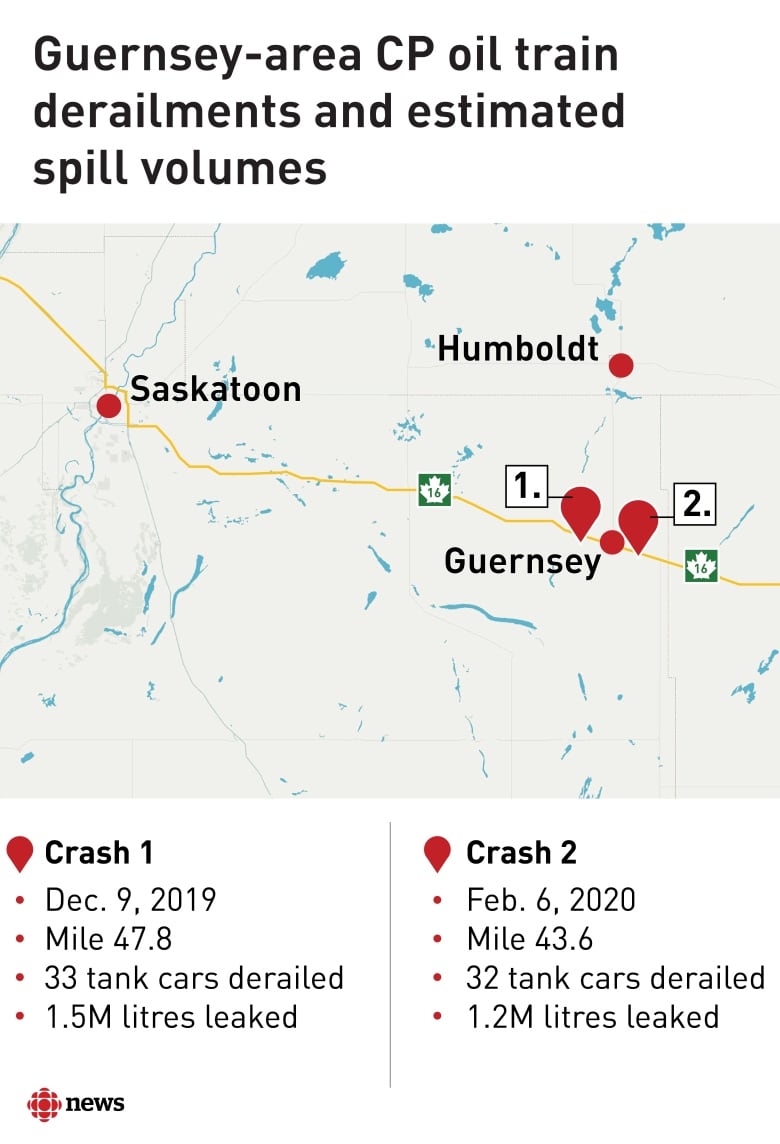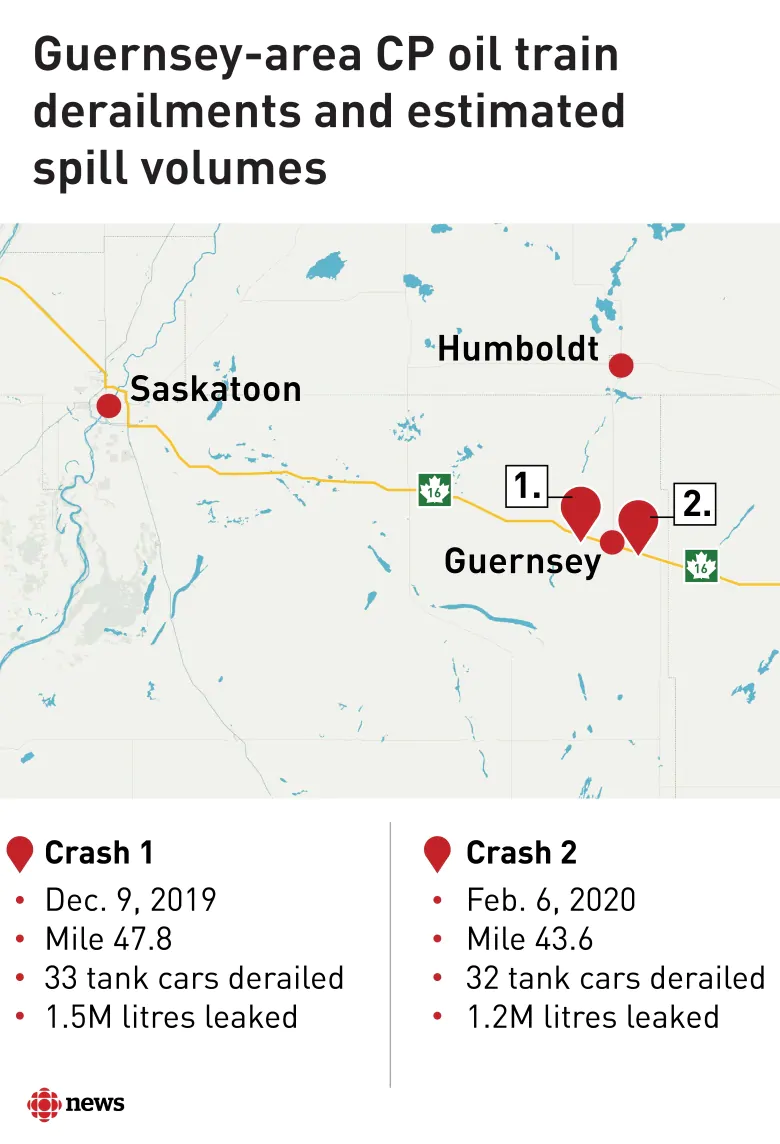Public police forces are choosing not to investigate major accidents at CN and Canadian Pacific Railway, including recent crude oil train crashes and deadly derailments, a CBC News investigation into Canada’s rail system has found.

Public police forces are choosing not to investigate major accidents at CN and Canadian Pacific Railway, including recent crude oil train crashes and deadly derailments, a CBC News investigation into Canada’s rail system has found.
Instead, the RCMP, Ontario Provincial Police and other forces routinely defer to little-known federal railway police run by CP and CN, leaving the companies to investigate themselves with no outside police looking into potential criminal negligence.
It’s infuriated some families of workers killed on the railways who claim a “double standard” where outside police are willing to move in to clear blockades along Canada’s rail lines but routinely don’t investigate rail corporations in the event of major disasters or fatalities.
“It makes me angry,” said Tara Jijian, whose husband was killed working at CP’s rail yard in Regina.
“Because the blockades and protests affect the economy somewhat, everybody rushes to make sure that, you know, ‘We have to clear this off, this has to be dealt with,’ ” said Jijian.
“But when it’s a person that is killed on those same railway tracks, the police just absolutely refuse to get involved.”
WATCH: Tara Jijian says CP rail police are preventing outside investigation of her husband’s death.
Tara Jijian says RCMP, Regina police won’t probe her husband’s death. 0:25
Instead, outside police defer to the railways, which since the 19th century have employed their own fully authorized federal police forces, which have all the powers of regular police.
But unlike public police, rail police lack any civilian oversight, are paid for by private companies and are not governed by any formal police act.
CBC has uncovered a string of recent major rail crashes where no police force of any kind stepped in – or only railway company police investigated — leaving what some say is a vacuum of accountability when it comes to potential criminal negligence on Canada’s rail lines.
Fiery derailments, no police
In three recent derailments that leaked millions of litres of crude oil in Saskatchewan and Ontario, no police agencies investigated, CBC has found.
In early December, when 33 tanker cars crashed and exploded southeast of Saskatoon, CP Railway said their police service did not investigate and referred inquiries to the RCMP.
“The RCMP has been involved and has jurisdiction,” a CP spokesperson said.
The RCMP appeared dumbfounded.
“I’m not totally sure where you are getting your information,” the RCMP told CBC, pointing back to CP police and the Transportation Safety Board as the lead agencies.
“In this case we were only there for traffic control and to assist if required with any type of evacuation,” the RCMP said.
-
Send tips to dave.seglins@cbc.ca or via SecureDrop
Two months later, just seven kilometres down the same CP rail line, a second crude oil train derailed and exploded, forcing evacuation of the hamlet of Guernsey.
WATCH: Drone footage shows second derailment in two months
There have been no reports of injuries after a train derailed near a Saskatchewan hamlet. Emergency response says 12 of the 31 cars that derailed are on fire. 0:33
Neither CP police nor the RCMP investigated, despite striking similarities in the crash on the same rail line where regulators had earlier found problems with the track.
In northern Ontario, neither OPP nor CN Police are investigating the derailment of an oil train near Fort Frances on Feb. 18, 2020, involving 26 crude oil tanker cars, CBC has confirmed.

Unlike in a highway car crash where police investigate, in rail a crash the Transportation Safety Board is the agency with the responsibility of probing causes and coming up with safety recommendations.
But the TSB does not lay charges and said it is not “legally competent to assign fault.”
The TSB says that’s up to police.
“The fact that TSB is investigating does not preclude any other agency from investigating in accordance with its own mandate (e.g. police, coroner, regulator, etc.),” TSB spokesperson Geneviève Corbin wrote in an email.
Railway police say outside forces are welcome to step in.
“The RCMP not only have jurisdiction to investigate offences that occur on CP property but are duty-bound to do so,” said CP spokesperson Jeremy Berry.

The RCMP and other forces point back to railway police and say they won’t intervene unless asked.
This fin

